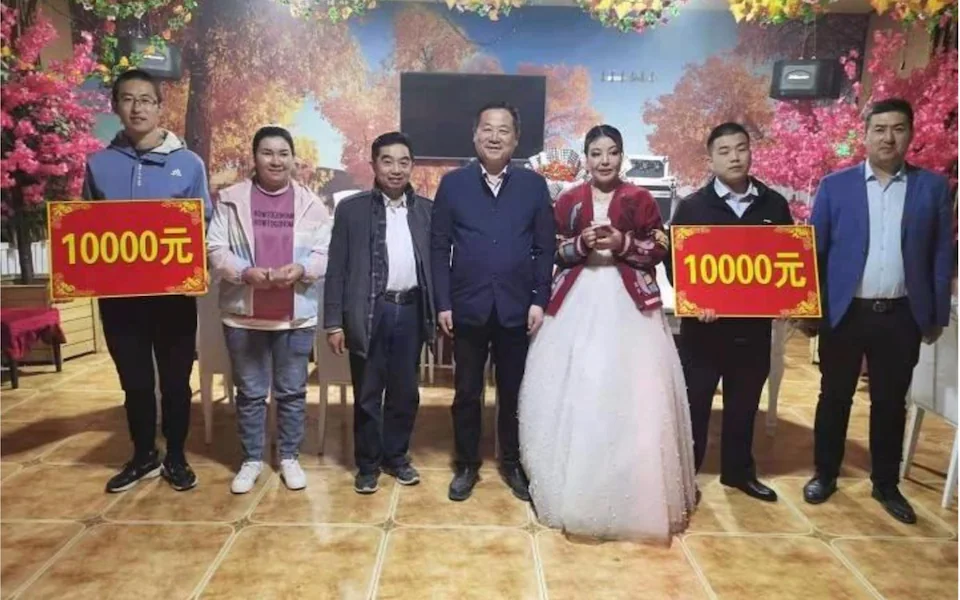Chinese people are being paid to marry Muslims in order to wipe out the Uyghur population, a human rights body has said.
Local authorities are using financial incentives and blackmail to force Uyghurs and members of the Han majority into arranged marriages in China’s western Xinjiang region, according to a report by the Uyghur Human Rights Project (UHRP), a Washington-based nonprofit.
The report draws from official policy documents, social media posts and interviews with Uyghurs abroad.
Xinjiang officials have been offering cash rewards as well as housing and education subsidies, jobs and medical cover to Uyghur women willing to marry Han men – as well as reportedly threatening the women that they or their family could end up in internment camps if they refuse.
In one instance, officials from Kalasa village in Aksu Prefecture offered 40,000 yuan (£4,750) to two mixed Uyghur-Han couples as part of the village’s “National Unity, One Family” campaign, according to local media.
Similarly, the ancient city of Kashgar put aside 20,000 yuan (£2,380) annually for “ethnic intermarriage awards”, according to official documents.
An Uyghur woman abroad said her neighbours “had to agree to wed their 18-year-old daughter to a Han Chinese out of fear that they could be sent to internment camps”.
“The threat of detention … suggests that some measure of coercion, however indirect, is likely present in many ‘new-era’ Uyghur-Han interethnic marriages,” the report said.
“An Uyghur woman is simply not in a position to reject a Han man who expresses interest in marrying her,” it added.
Videos show distressed Uyghur brides
Videos circulating on Douyin, China’s version of TikTok, and archived by Uyghur activists abroad, show mixed Uyghur-Han wedding ceremonies featuring clearly distressed Uyghur brides.
In one such video, apparently used for propaganda, a mixed couple thanks China’s Communist Party for their “beautiful life,” while an Uyghur-language voiceover announces the government is urgently seeking “100 brides” to “promote the marriage between Uyghur and Han”.
Such videos have raised concern among activists and fomented speculation that local authorities might be required to meet quotas for mixed marriages.
China has “long viewed high rates or high instances of interethnic marriage as a kind of proxy symbol for social cohesion and national integration,” said James Leibold, a professor specialising in Chinese politics and society at La Trobe University in Australia.
Beijing sees mixed marriages as creating a “more secure” environment for Xi Jinping’s foreign policies, he said.
Beside coerced marriages, China has also been accused of conducting forced sterilisation, torture and mass internment in Xinjiang.
The United Nations earlier this year said China may have committed crimes against humanity in the region.
Countries including the US have labelled the actions a “genocide”.
China denies any human rights abuses in the region and says its campaign has been necessary to curb terrorism and extremism.
telegraph.co.uk

